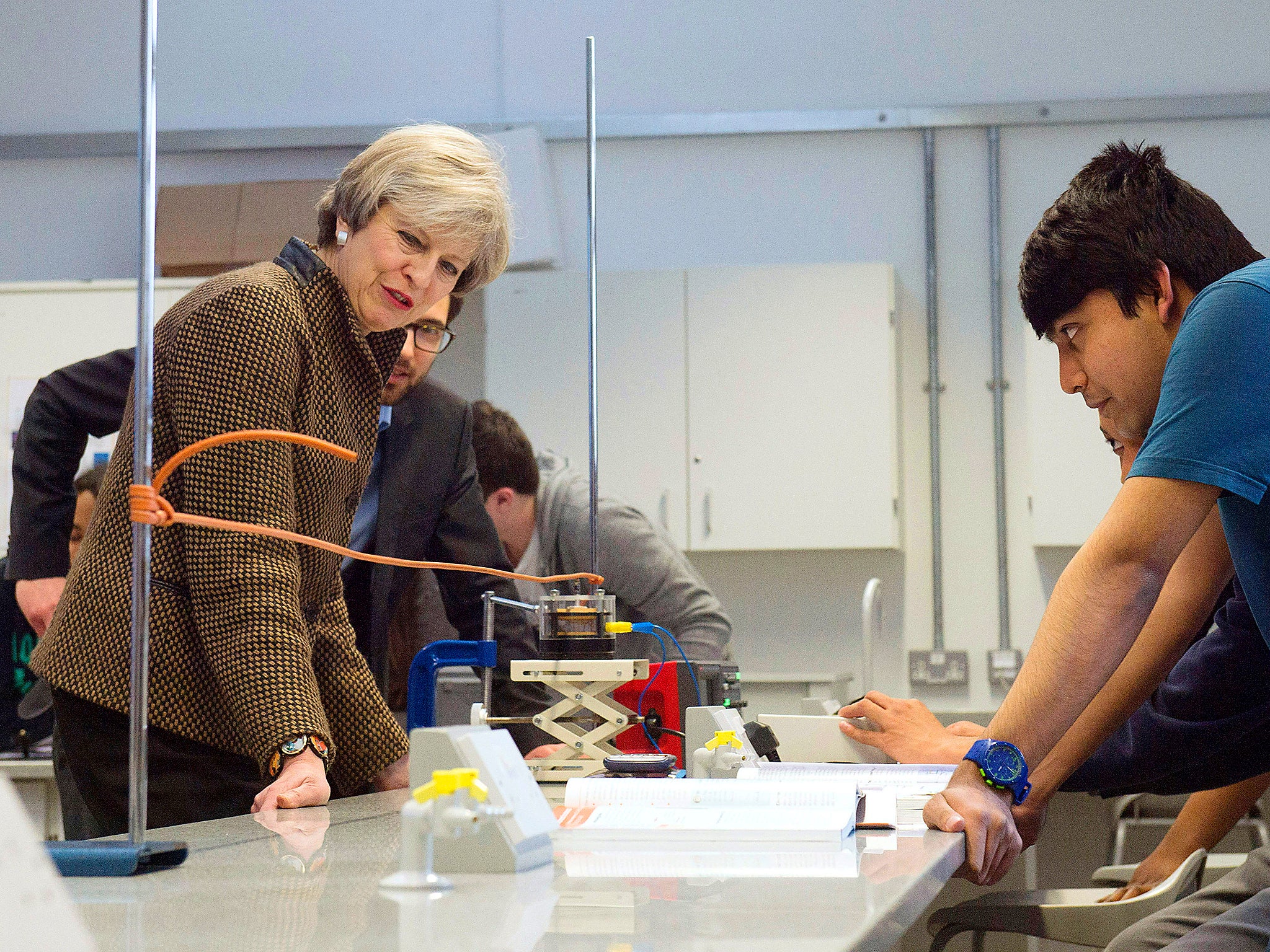Children need to be educated for the Fourth Industrial Revolution, but grammar schools are leaving them behind
By 2022 there will be 9.2 million low skilled people chasing 3.7 million low skilled jobs. Grammar schools aren’t helping the situation by prioritising academic excellence for the chosen few


Your support helps us to tell the story
From reproductive rights to climate change to Big Tech, The Independent is on the ground when the story is developing. Whether it's investigating the financials of Elon Musk's pro-Trump PAC or producing our latest documentary, 'The A Word', which shines a light on the American women fighting for reproductive rights, we know how important it is to parse out the facts from the messaging.
At such a critical moment in US history, we need reporters on the ground. Your donation allows us to keep sending journalists to speak to both sides of the story.
The Independent is trusted by Americans across the entire political spectrum. And unlike many other quality news outlets, we choose not to lock Americans out of our reporting and analysis with paywalls. We believe quality journalism should be available to everyone, paid for by those who can afford it.
Your support makes all the difference.In the last few days the Prime Minister, Theresa May, claimed she was creating an extra 70,000 grammar school places while the Chancellor announced an extra £500m for technical education. The Prime Minister claims the grammar school policy is about helping the brightest amongst the poor, the Chancellor that his skills policy is about tackling poor productivity.
The grammar school policy is already falling apart. Instead of funding for 70,000 places it has emerged that funding for only 13,000 places by 2020 has been allocated by the Treasury. But even if both measures were delivered in full, the question before the country, as we approach the triggering of Article 50 and stand on the cusp of a Fourth Industrial Revolution, is whether they are enough to prepare our people for the challenges ahead. The answer is no.
The new announcements need to be set in proper context. The creativity and talent of our people will determine whether we succeed or fail as a country and educational opportunity is central to any claim that we live in a country that works for everyone. Yet in the last decade, 500,000 children from the most deprived neighbourhoods were not school ready by the age of five. At the end of the Tory’s first term, in 2015, only 53 per cent of school leavers in England achieved five good GCSE passes that included English and Maths. Seven years in to a Tory government, a child living in England’s most disadvantaged area is 27 times more likely to go to an inadequate school than a child in the most advantaged. And even with the additional money, further education will be chronically underfunded, many courses are not of a high enough quality, and attendance rates are flatlining while drop-out rates remain too high.
It’s no wonder that productivity levels in Germany are 36 per cent higher than they are in the UK. And no wonder the Local Government Association has forecast that by 2022 there will be 9.2 million low skilled people chasing 3.7 million low skilled jobs while we suffer a shortage of 3 million high-skilled workers.
Set against this backdrop the additional funds announced for technical education are welcome, as is the promise to streamline vocational qualifications so young people can make more informed choices. But these changes don’t go anywhere near far enough.
The reintroduction of grammar schools meanwhile, promises islands of excellence for a limited few. It is an evidence-free exercise based on ignorance and prejudice that reveals an important truth: Theresa May doesn’t know how many of the brightest there are among the poor, but she believes they will be few in number. The fact that countless potential doctors, diplomats, teachers, scientists, engineers, software developers, and creators of world beating businesses are slipping by the way-side because we’re not investing in their talent appears not to have occurred to her. But it has occurred to many of us in the Labour Party.
So instead of a little extra-funding for technical education and a few more grammar school places we should do something else. To future-proof Britain, its economy and its people, we must match the deep-rooted public expectation to access quality healthcare with a new entitlement for every citizen in the country to access not just an education but an excellent education, whoever they are, whatever their circumstances, and wherever they live.
Making that entitlement real, so that all can contribute to our future national success and that the daughter of a cleaner in Barnsley can have the same life-chances as the son of a banker in Belgravia, means making a historic national commitment to deliver educational excellence everywhere in Britain, within a decade. That means excellence at every level of the education and skills system, in every institution, in every community, from early years provision to life-long learning, and from the White Cliffs of Dover to the islands of the Outer Hebrides.
To get there, we will need to reform some educational institutions and approaches and may need to create others. We will need to work with experts we haven’t had enough of, like teachers, parents, lecturers, technologists and employers to re-define what excellence is, because in preparing our children and workers for jobs that don’t exist yet, there is going to have to be far greater emphasis on creativity and teamwork in our education and skills system, so it is capable of delivering the collaborative problem solvers we are going to need.
We will need to eliminate the attainment gap between the children of the poor and those of the rich and eliminate inadequate schools and those requiring improvement entirely, while lifting all to the level of the best. And further education, vocational training and opportunities for in-work and life-long learning will all need to be further invested in and in many cases overhauled.
Only excellence re-defined for 21st century challenges, and offered on this scale, is capable of delivering a people prepared for the challenge of life beyond Brexit and the challenges and opportunities of the coming automated economy. Only a commitment to excellence on this scale can deliver a country where parents don’t have to mortgage or rent themselves to the hilt to get into the catchment area of an excellent school. And only a commitment to excellence on this scale can make a reality out of the Tories’ rhetorical promise of aspiration for all and a fairer country.
Talk is cheap. It is time to deliver on the right to an excellent education for everyone, everywhere in Britain.
Dan Jarvis is MP for Barnsley Central
Join our commenting forum
Join thought-provoking conversations, follow other Independent readers and see their replies
Comments